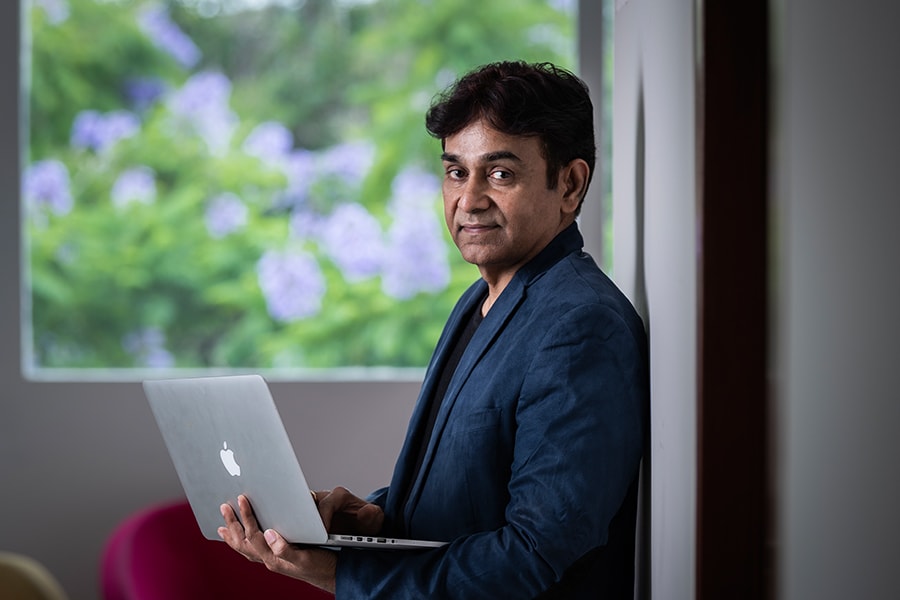
Anil Bhaskaran: Sculpting in space
The architect and urban planner creates unique buildings with a mix of traditional and contemporary architectural elements

Jal Bhavan, Infosys Mangala and Ramana Maharshi Centre for Spirituality are some of Karnataka’s most iconic buildings. Man-made structures and their environments in perfect balance. Meet the architect behind these architectural landmarks, Anil Bhaskaran.
Based in Bengaluru, Bhaskaran is a proponent of the ‘touch and feel experience’ that people get when they come in contact with various forms of design. A pioneer in thinking out of the box--outside the usual glass and steel boxes that one sees around nowadays--he believes that buildings should be ‘habitable sculptures’ that should inspire a feeling of awe, yet be functional.
Armed with a first rank in bachelor's degree from the University of Kerala, he went on to earn a Master’s degree in Architecture and Urban Planning from the University of Minnesota, US. After gaining valuable work experience from Skidmore Owings and Merill, he returned to India in the early nineties. He set up IDEA Centre Architects, in Bengaluru, an architecture firm that has completed over a hundred projects to date, in and outside India. “As a student of nature, I find that despite its innumerous forms, nothing is created using straight lines. A lot of my designs are an interplay between straight and curved forms.” Another area of his interest semiotics, the science of signs, also inspires his designs. “Whenever I find an opportunity, I subtly use symbolism in my designs.”
Bhaskaran believes buildings must establish a strong connection with the context and climate of the place that they are located in. “Respecting our planet is very important. Architecture and urban planning are sciences that deal with built environments. I have always been a strong proponent of responsible architecture and I believe my designs reflect this.” During the last fifteen years, Bhaskaran ideated extensively to develop new theories in urban and city planning. “When I started my practice, I realized that there have been no serious attempts anywhere in the country to design a prototype for a typical Indian city. Therefore, I devoted a lot of my time to developing one.”
Thoughtful, philosophical and yet strongly functional, his designs have been featured in over a hundred publications and have won many awards, including the one for the Best Design for the Most Sustainable Township, at the recently concluded Global Smart Build Summit in Pune. He also runs a non-profit initiative, India Urban Care Forum, that aims to contribute to the wellness and betterment of Indian cities. (For more info, visit www.ideacentrearchitects.com).
Disclaimer: The pages slugged ‘Brand Connect’ are equivalent to advertisements and are not written and produced by Forbes India journalists.




